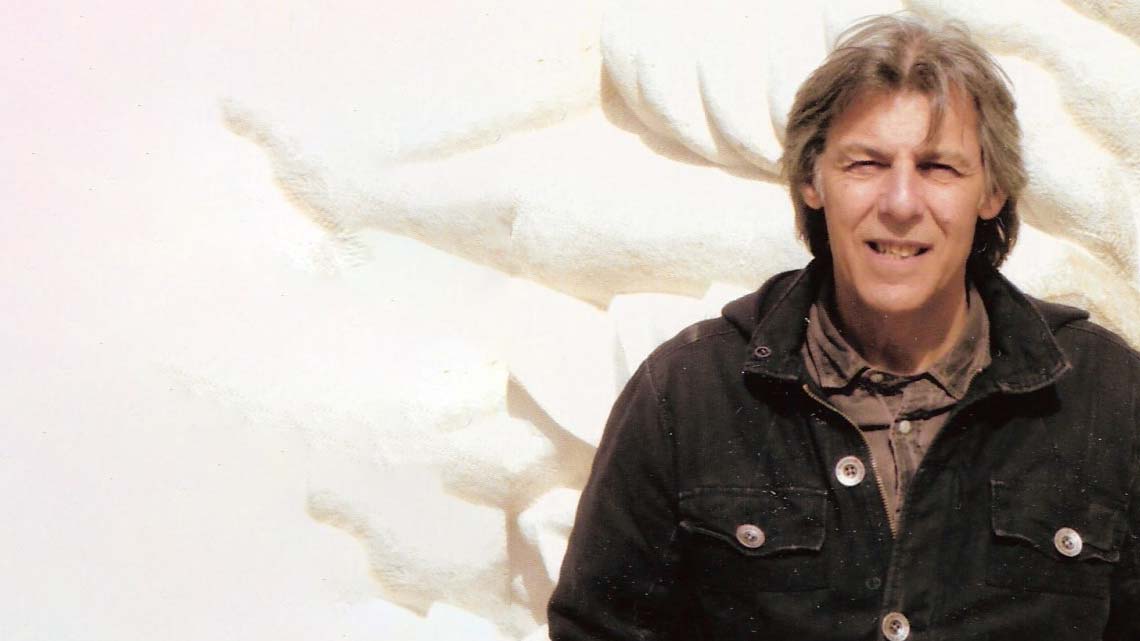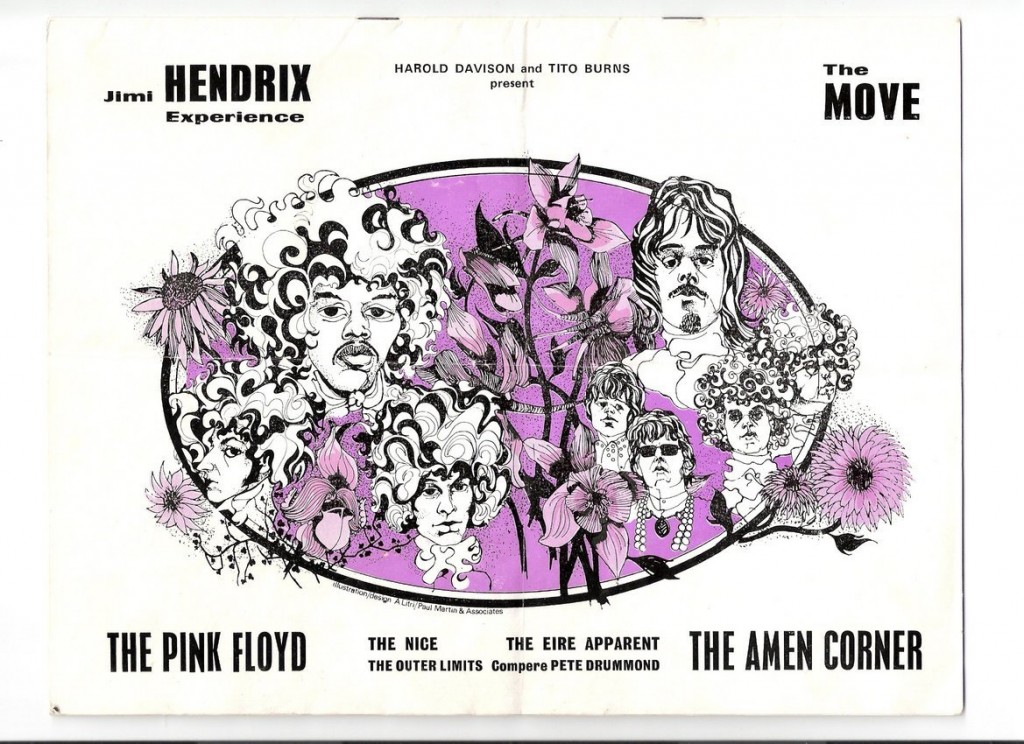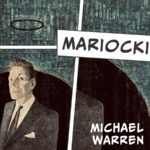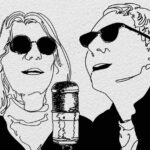
Jeff Christie (Used with permission)
Jeff Christie, the songwriter best known for the chart-topping 1970 hit ‘Yellow River’ is back with new album Here & Now. In this interview with Jason Barnard, Jeff shares insights into his inspirations and the threads of social awareness and resilience that have come to shape his work. From memorable tales of the 1960s music scene to his reflections on the enduring impact of his time in Christie, Jeff the stories behind his songs.
Your new album Here & Now blends both new songs and reworked versions of older tracks. What made you decide to revisit some of your earlier work for this album, and how did you approach revisiting them?
When Christie were making hit records in the ‘70’s we never really had enough studio time to experiment as we were such a heavily toured band, and when we did, the sessions were always sandwiched between tour dates and always rushed because of CBS’s policy of less time for singles bands with more time allocated for album bands. We were considered a singles band at a time when ‘heavy’ bands were in the ascendant. This also was the case recording our first album when we were shunted around from studio to studio and had little or no say in which studio we might prefer and literally had to knock them out in a 2–3-hour session.
Interestingly enough when we embarked on our second album For all Mankind they cut us a little more slack, as by then our sound had morphed into a more heavier rock sphere heralded by the single ‘Man of Many Faces’, which drew critical acclaim from the rock press like ‘Melody Maker’ and ‘Sounds’ but didn’t get the radio plays and as a result the record bombed. It was a bit dark and introspective and a long way away musically and lyrically from the first three hits.
A few of those singles and the odd track from the first album had long been something that when I had the time, I would address and give them the attention they deserved. And then I forgot about them till just before the pandemic when I had written some new songs and had started recording them. During that process I decided to re-work and re-record some of these old songs starting with ‘Man of Many Faces’ which was radically different to the original single. It also proved to me that if a song is good in its original form and of its time, then a new arrangement and production can dynamically update it and give it new life. This was the same thinking and MO for ‘Fool’s Gold’ and ‘Put Your Money Down’.
The reworking process was to sit down with a guitar and just experiment with tempos, different chording and melodic shifts until a cohesive structure would emerge and then everything just fell into place. Sometimes I didn’t stray too far from the original structure and feel, but would augment different instrumentation into the song and then using up to date recording technology to add a superior sonic quality to its predecessor.
How did the process of recording Here & Now differ from your previous albums, especially given the challenges of remote collaboration during the pandemic?
Previous albums were usually recorded in studios with engineers, producers etc all at hand. We’d rehearse the songs and then go in and record them together. In later years I’d do most of the recording myself in studios using the odd session player to help out on things like drums, sax and flute which is my continued working method to this day.
The pandemic opened up new opportunities and forced many musicians to work remotely with each other over the internet which is exactly what I did, although this process is not new, think McCartney and Michael Jackson’s collaborations – recorded in two separate continents at different times, each in their own studio environments and then just the odd song together. Doing an entire album is a different matter. It’s less satisfactory than sitting down in the same space, face to face and working through arrangements together and it can make the process longer and more painstaking but once I got all the instrumental and vocal parts to a good standard it was then down to final mixing and editing in the studio.
Can you tell us more about how the themes of reflection, resilience, and social commentary in the album were shaped by the world around you?
We live in a beautiful yet savage world and all around we bear witness to these themes subjectively and objectively. I think I’ve always been moved by them and the older I get the more I’m aware of them and reflect these observations back into the songs I write. Sometimes when set to music these universal themes can reverberate into a person’s subconscious which I believe has a more motivational impact than the conscious mind.
I hope that doesn’t sound too arrogant.
You’ve spoken about your fascination with the American Civil War and Native American history. How have these interests influenced your songwriting?
Perhaps not so much these days although I still hold those feelings. The opening track ‘Driving Down To Memphis’ was after a dream I had had after a friend had visited Graceland with his daughter and brought me a kitschy souvenir coffee mug with a picture of Elvis on one side and my name on the other. A really vivid dream where I was driving in my dream to Graceland. About 25 years ago I was in Canada for a family reunion and on the way to the airport before leaving, my cousin had been telling me about a woman who had a reputation for seeing into the past.
He really wanted me to see this woman who was some sort of medium and would supposedly go into some trance like state and connect to the spirit world. I was sceptical but we had time so we went together. A strange and slightly disconcerting 20 minute ‘reading’ took place and her voice changed quite noticeably. She did most of the talking after asking my name and birthplace. I don’t remember everything but what stunned me was she told me that I had been a Chippawa elder in a past life. Now I’m very ambivalent about spirit world mediums etc and veer towards disbelief more than belief of these things but who knows, maybe this is why I have this connection to North America and its peoples.
‘Ordinary People’ touches on societal issues like the gap between rich and poor. What motivated you to write this song, and how do you see the role of music in addressing social issues?
Well ordinary people are words that we hear on a regular basis in conversation and I often think titles are like hooks that be joint melodic and titular and this is the genesis of this song. Once I got down to craft it and started thinking about people in general it just flowed from there in its observational tone. An unfair world for so many, often by default of birth place. The rich, poor and dispossessed have always been part of life and I just acknowledged that in the song. I don’t especially think it can really alter that but music is definitely a bridge to millions of people and something powerful and mainly a good thing.
With tracks like ‘One in a Million’ and ‘Building Bridges,’ there’s a clear sense of introspection and calls for unity. Were these themes born out of personal reflection or more from observing global events?
Both really. ‘One in a Million’ was about a few special people I had known in my lifetime who had made a strong impact on me. Invariably good role models, some conformist and some non-conformist but all imbued with a strong set of humanitarian values.
‘Building Bridges’’ is looking inward and outward and is simply the wish that the world could be a nicer and better place if we could just try and see the other’s point of view and use that to find some reconciliation in the pursuit of a more peaceful world.
Being Leeds’ most successful songwriter, what influence has the area had for you; and what are your memories of the music scene here in the 1960s when you were in The Outer Limits?
Well I’m not sure if I’m Leeds’ most successful songwriter but am happy to be considered one of Leeds’ most successful songwriters.
I was fortunate growing up at a time when there was a revolution in popular music and I don’t think it would have mattered which town I would have grown up in as radio was such a strong influencer for young musicians who were in thrall to the White and Black singers and songwriters of that era. The music scene in Leeds echoed the music scene in Manchester, Liverpool, Birmingham and London although in Leeds one of the main clubs was The Three Coins for live bands, The Queens Hall for all-nighters, Leeds Uni and various pubs and small clubs. But I think the most iconic places to play in those days were The Twisted Wheel in Manchester, The Place in Hanley, The Cavern in Liverpool, The Mojo in Sheffield, The Marquee in London and The Club a Gogo in Newcastle. The Outer Limits like most other decent bands did the rounds of these clubs and built a following and one which helped land us the Hendrix tour in ’67 which was a definite high point.

You’ve spoken about the satisfaction of creating something from nothing. Could you describe the process of how a song typically comes to you, from initial idea to completion?
Very often a turn of phrase, or something somebody might have said sparks my imagination and I’ll find myself tuning it and then work laterally until it takes some kind of musical shape. At that point the lyric that follows leads the way as to the nature of the song. It’s not usually a conscious thing more a feeling that informs the storyline. I’m sure this sounds a bit nebulous but imagine if a melody emerges that is in a minor key, then that prompts a lyric suitably sympathetic to that melody. The opposite also is true and then there’s the in-betweens, but they fall into any number of scenarios that can be applied.
‘Yellow River’ is still revered today. How do you feel about the enduring legacy of that song, and does it still resonate with you in the same way?
It’s hard to be dispassionate about a song that I wrote some 55 years ago that has been so successful on the world stage and spawned hundreds of covers from smaller artists to bigger ones. From Reggae to Smooth Jazz, from Mariachi to Pan Pipes, from Brass Bands to Pipe Bands, from Bluegrass to Euro-disco etc not forgetting synchronisation in film and marketing. It’s my baby and even though the baby’s grown up and left home we’re umbilically attached, inseparable and a source of pride still.
Can you talk about the influence of artists like Jimmy Webb on your work, and how you integrate those inspirations into your own unique sound?
It’s no secret that Jimmy Webb has been a great influence on me as have others just as much, like Bacharach & David, Felice & Boudleaux Bryant, Roy Orbison, Buddy Holly, Brian Wilson, Lennon, McCartney and Harrison, Holland Dozier, Holland, Leiber and Stoller, Henley and Frey, Carole King, the Brill Building songwriters and so many others including the Great American Songbook writers. I think absorbing all these genius writers over long time periods percolated down into my own writing and set a high bar to which I try to aspire to and stay true to. In some cases I would hear someone else’s song that I liked which would make me want to write a song that might have that same impact and that is what happened with ‘Yellow River.’ The song in question was Jimmy Webb’s ‘Galveston,’ oddly enough not his version but Glen Campbell’s genius commercial interpretation.
In what ways do you feel your songwriting has evolved over the years, particularly on Here & Now compared to your earlier work with Christie and The Outer Limits?
Hopefully a more mature writing style honed from what I’ve learnt over decades, musically and lyrically with more nuance and metaphor.
With over 300 self-penned songs, is there a particular track in your back catalogue that holds special meaning for you? If so, why?
There are a few, but if I had to choose one it would be ‘Take Me As You Find Me’ from the Floored Masters album. It triggers an emotional response in me because it was the last time I saw my friend the bassist John Glascock who died a few days after that song’s last session in London in the early ‘80’s. We had been close friends ever since he was in Carmen and then Jethro Tull, and he had been working on a few of my songs and this was the last one. After the session and late in the evening I dropped John off in Swiss Cottage and we talked about future working together and maybe putting a band together with myself, him on bass and Paul Fenton on drums forming the nucleus. A bitter sweet memory.
What’s next for you, are there other projects on the horizon?
Just to keep doing what I love and always looking to write the perfect song.





Jason ,
another fantastic interview with Jeff .His new songs are great and I hope the new album will be a big hit for him This album contains many fantastic tracks and i hope it is possible for Jeff to work with the fantastic Italian singer and songwriter Lorenzo Gabanizza in the near future These two guys are a wonderful combination to produce music together .Jeff has several fans in Europe ,specially in Germany ,would be a pleasure to see him in a German TV show again ,maybe with Lorenzo
All the best to Jeff and his friends
Hi Jeff
Steve Leo here from South Leeds.
Permission please for me to give you a mention on a podcast being done on ChapelFM Community Radio in Seacroft East Leeds.
Famous bands from Leeds – 70’s memories – Yellow River and Leeds Market etc…
Broadcast is on 05/12 11am – 12.30pm.
I am also a poet & am reciting my poem on my admiration and inspiration fir Pam Ayres.
I already have asked if it is ok and sent it for scrutiny & feedback.
Thanks
Steve Leo Whitby